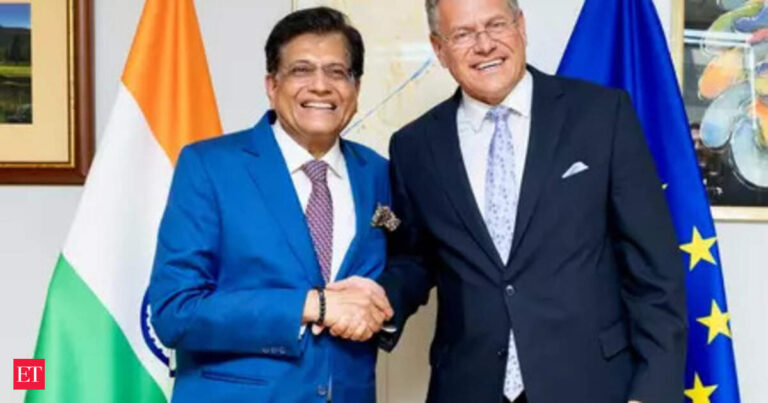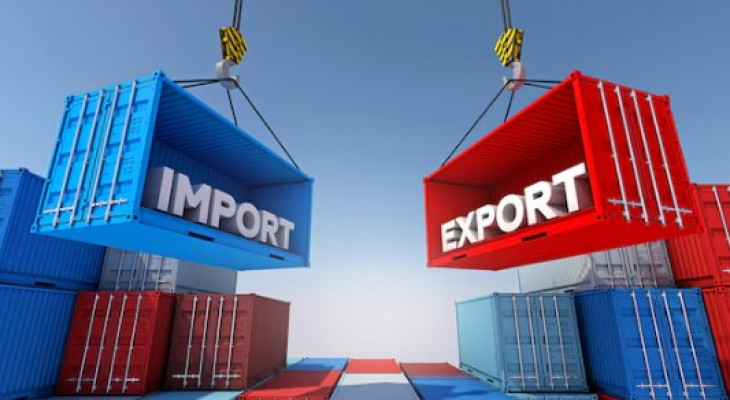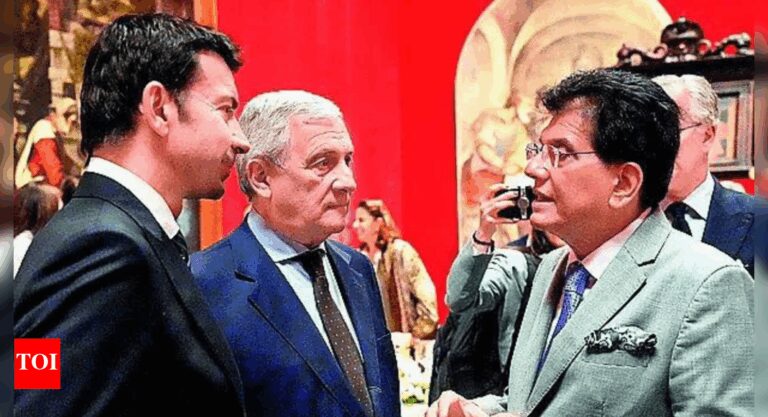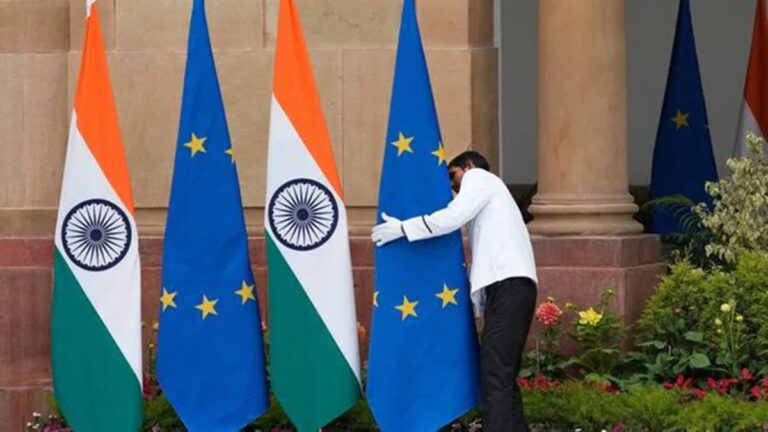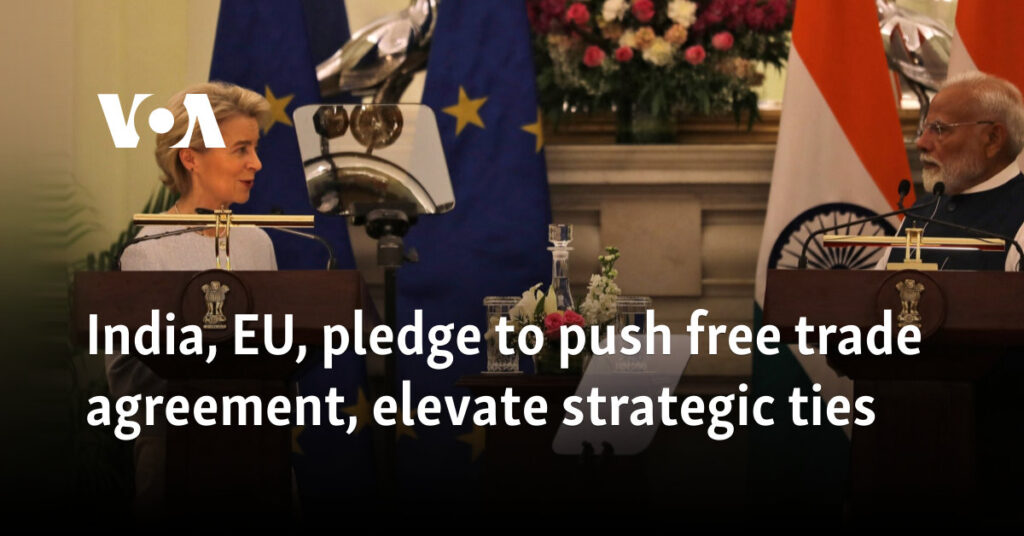
India and the European Union have agreed to conclude a free trade agreement by the end of this year, the two parties announced on Friday in the Indian capital between Prime Minister Narendra Modi and the president of the European Commission Ursula von der Leyen.
While the negotiations between India and the EU have dragged on for years, analysts say that there is a greater emergency to conclude a pact such as the threat of the prices of US President Donald Trump encourages many countries to accelerate efforts to increase access to markets outside the United States.
Von der Leyen came to New Delhi with leaders of the EU countries. After interviews with the Indian Prime Minister, she described India as “friend sharing the same ideas” and said that “we have in charge of our teams to rely on this momentum” to finalize a free trade pact.
The two parties also discussed the elevation of their defense and security partnership. Modi said that they had prepared a “collaboration plan” in areas such as trade, technology, investment and security.
Before his meeting with Modi, Von Der Leyen said that the EU and India “have the potential to be one of the decisive partnerships of this century” and that it was time to bring their strategic partnership to “upper level”.
A flow of geopolitics pushes countries to diversify partnerships, according to analysts.
“For India, which rushes to navigate the turbulence unleashed by Trump, Europe appears as a precious partner,” wrote political analyst C. Raja Mohan in the Indian Express newspaper. “Although neither can afford to disengage from the United States, India and Europe must do more to strengthen their ties in response to Trump’s unpredictable policies.”
A free trade agreement between the EU and India “would be the greatest agreement of this kind in the world,” said Von Der Leyen. “It is time to be pragmatic and ambitious and to realign our priorities for today’s realities.”
Trump said he would impose a 25% rate on European Union imports. His plans of reciprocal prices will also reach Indian exports to the United States
The EU is India’s largest trading partner in terms of goods – bilateral trade was more than $ 130 billion in 2023-24.
Negotiations between India and the EU started years ago, but were blocked for eight years before resuming in 2021.
The main bonding points were New Delhi’s reluctance to reduce prices on the main European imports in India, such as cars, whiskey and wine, while the EU hesitated to concede the demand of New Delhi to facilitate the edges of visas on Indian professionals.
India also wants better access to the EU for cheaper medicines and chemicals.
India, the fifth world economy with high middle class, is considered an attractive market but has high protectionist obstacles.
Earlier this week, India and the United Kingdom also resumed commercial negotiations during a visit to the British affairs and business secretary Jonathan Reynolds in New Delhi. The Indian Minister of Commerce, Piyush Goyal, said that the two countries aimed to double bilateral trade in a decade. Reynolds said that the conclusion of a trade agreement was an “top priority” for his government.
Commercial analysts claim that there is a “feeling of emergency” to seal commercial pacts.
“It seems that there is a real intention on part of India and other partner countries to do something this time. The moment is important – the threat of Prices from President Trump can cause commercial disruptions. So, I think that countries want to conclude agreements before the global atmosphere changes relatively open to more protectionist, “according to sales analyst Biswajit Dhar in New Delhi.
Although India has made slow progress in the winning of free trade pacts in the past, this intensifies efforts to conclude agreements in the midst of fears that potential changes in world trade could make a challenge to reach the Prime Minister Modi goal to grow exports to 1 Billion by 2030.
“Trump’s unleashed commercial uncertainties are pushing the Indian government to take a closer look at the protection levels in the country. He can no longer afford it, ”said Dhar.
“Each large country is interested in the large Indian market but complains of high prices.”
